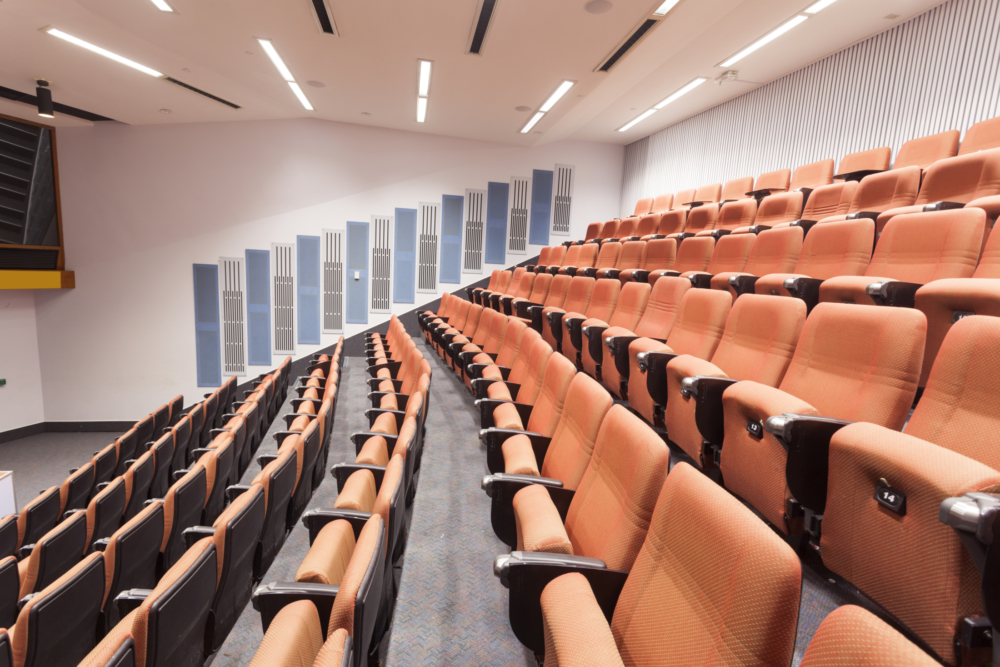
Hard FM Services Optimise Indoor Air Quality
The average person spends 80-90% of their time indoors and the call for better indoor air quality is growing. In recent times, there is a growing pressure for governments to commit to ensuring optimal air quality within all buildings. Indoor air quality (IAQ) has a major impact on health, especially in buildings where people spend a prolonged period inside, such as in educational buildings, indicating the importance of high-quality ventilation across all spaces. Within the industry of hard FM services, it is important that facilities managers remain vigilant of any evolving legislation as the prominence of the Clean Air Bill grows and indoor air quality is at the forefront of people’s minds.
At Artic, we work with a dynamic portfolio of buildings across London and help to create comfortable, safe environments with closely monitored IAQ. Delivering our hard FM services to industries across higher education, healthcare and commercial office spaces, we have the expertise to make sure a building’s IAQ is at its optimal. Join us in exploring the ways IAQ should be a priority for everyone, and how it can be improved.
Control the Temperature
A recent university study was undertaken which involved testing students in different climate-controlled rooms. In this study, it concluded that the optimum temperature for a learning environment is between 21-25° Celsius. In schools especially, there has been considerable research conducted which shows that the quality of air within learning spaces has a large effect on concentration levels and learning experiences, for example, recent studies show that elevated levels of CO2 and PM2.5 air pollutant has a negative effect on cognitive functions such as attention span, essential functions for learning.
Across our higher education sites, we have delivered several universities control over their building’s ventilation using hard FM services that provide automatic temperature control and regular maintenance, ensuring university air conditioning is playing a positive role in building a safe environment, optimised for fostering futures.
Ventilation
Ventilation is the best-known method of improving Indoor Air Quality (IAQ). As the call for better quality air is rising, ventilation in workplaces and learning spaces will play an important role in meeting potential new legislation. Chartered Institute Building Service Engineers (CIBSE) advise that 10 l/s/person is a minimum recommended supply of air volume for any working space, however, the fresher air delivered to any space, along with minimised or eliminated recirculation, the better. The need for increased ventilation to deal with air pollution moving forward will continue to challenge existing ventilation design in all spaces and Artic Building Services is at the forefront of innovating new ways to ensure enhanced IAQ.
Humidity
Humidity plays a major factor in air quality, occupant’s health and comfort, as well as being known to support the spread of viruses and infection when levels are not optimal. It is suggested that a humidity level of between 40-60 percent is best for cognitive function. However, increasing the humidity levels has a positive impact on work performance.
Volume & Distribution
Measuring the air flow rate relative to the size of a room is useful to understand how quickly the ventilation removes contaminants from the air. To mitigate the risk of a declining IAQ, a ventilation rate of six air changes per hour would be a general rule of thumb, although different applications require different design.
In principle, six air changes per hour means that 6 times the air volume of the room is provided every hour by the ventilation system. However, as the new fresh air mixes with the air that is already in the room it will dilute, so it doesn’t mean that all the air is changed 6 times within the hour. At six air changes per hour, approximately 95% of the contaminants in the air would be removed in 30 minutes.
At Artic, we are always considering the impact of retrofit solutions to tie in with occupant comfort in all our hard FM services as we move into a more sustainable future that demands optimal IAQ as a right for all.
Updating Areas with Hard FM to Meet IAQ Demands.
Universities, healthcare facilities and the private sector all have pressure to assess their spaces to determine if the IAQ meets best practice requirements and whether their hard FM services extend above those minimum requirements.
Given the diverse age of these estates, which include Grade I and II listed buildings, the spaces are served with ventilation equipment that is over 25-30 years old. For these areas to be brought up to recommended levels, Building Managers need to recognise the issues of the existing ventilation which can lead to problems with the build-up of stale air.
Advice around Indoor Air Quality (IAQ), and the BESA guidance in place helps Building Managers set up IAQ. Using mechanical ventilation systems and targeted filtration is recognised as the most effective way to reduce the risk of poor IAQ and building managers have acknowledged the importance to refit spaces with the very latest ventilation & air quality equipment that sustains healthy and sustainable spaces.
Real Life Example:
A project carried out to a lecture theatre included options to either retrofit the existing ventilation equipment or completely upgrade the system. The controls for the existing ventilation equipment were dated and used a pneumatic air system to control pressure dampers and switches. To overhaul or repair existing ventilation equipment would not be cost effective on the scale of the project, nor would it provide the energy efficiency needed to meet the principles of their sustainability strategy.
The installation of new Mitsubishi Lossnay heat recovery systems was selected which allows for the continuous influx of fresh air and the exhaust of stale indoor air to ensure that the indoor oxygen levels are maintained for the optimum balance of comfort and safety whilst meeting regulatory requirements. This heat recovery unit also tempers the supply air using heat transfer from the extracted air without recirculating.
The air is heated and cooled using in-line DX Coils piped back to the condensers, this system not only controls the lecture space temperature, but it also helps maintain humidity levels within the recommended parameters. It will extract up to 80% of the heat energy from the outgoing air, transferring it via heat exchanger to heat up the incoming air flow. This will significantly reduce the amount of energy needed to bring the temperature of the lecture theatre up to an optimal level of around 21° and maintain it at this temperature all year round.
The Lossnay’s energy efficiency and utilisation of heat recovery technology means the DX coils used to temper the supply air are kept down at just 3.12kW meaning they are the perfect choice for providing a clean and temperate atmosphere for the students within the lecture theatre.
With additional units, the capability to give the amount of air changes required for each of the lecture theatre upgrades to meet CIBSE’s guidelines could be achieved. The newly installed Lossnay units will provide ample fresh air into the lecture space whilst ensuring the correct temperature control for optimum learning. The installation of the equipment will now safely allow up to seventy people into the lecture theatre at one time without affecting the IAQ.
Artic Building Services Ltd, experts in Hard FM services, completed these works. As HVAC specialists, they were able to work closely with the building managers to optimise the study spaces and ensure students and staff share a space that doesn’t compromise on IAQ.
Stay in Control of IAQ with Artic Building Services
The importance of Indoor Air Quality isn’t one to shy away from, and studies reveal that the value of having optimal study conditions for students has a significant part to play in the future of educational institutes. In making these adaptations and utilising such energy efficient systems, it allows for extended budgets to be injected directly back into the university’s students’ education while focusing on their safety.
Partner with Artic to ensure that your building’s IAQ is optimised for the safety of its occupants. We can ensure that no matter the industry, your building will always be ahead of changing expectations and legislation.
Contact Artic today and set your building up for future success.
Share This Story!
If you're looking to partner with Artic Building, then please complete the Working With Artic form here.
Do you have an upcoming project or tender? Then please complete the form below.

